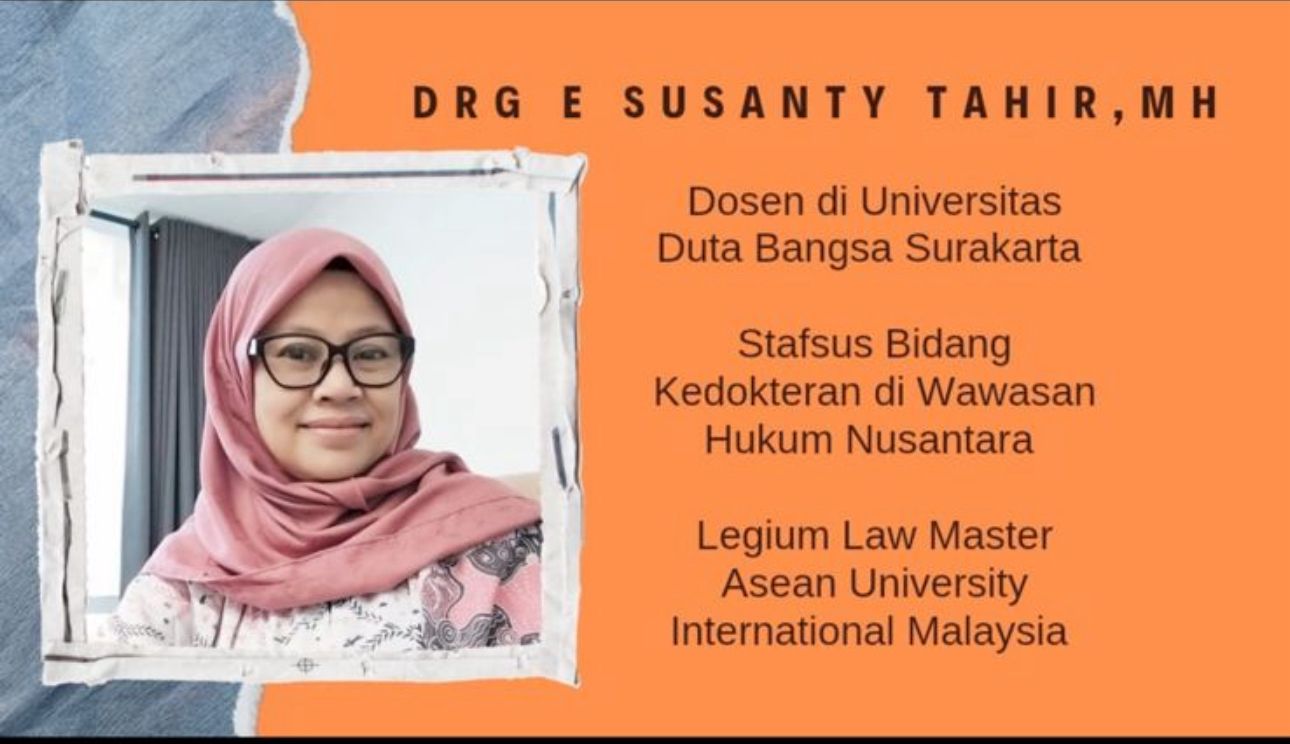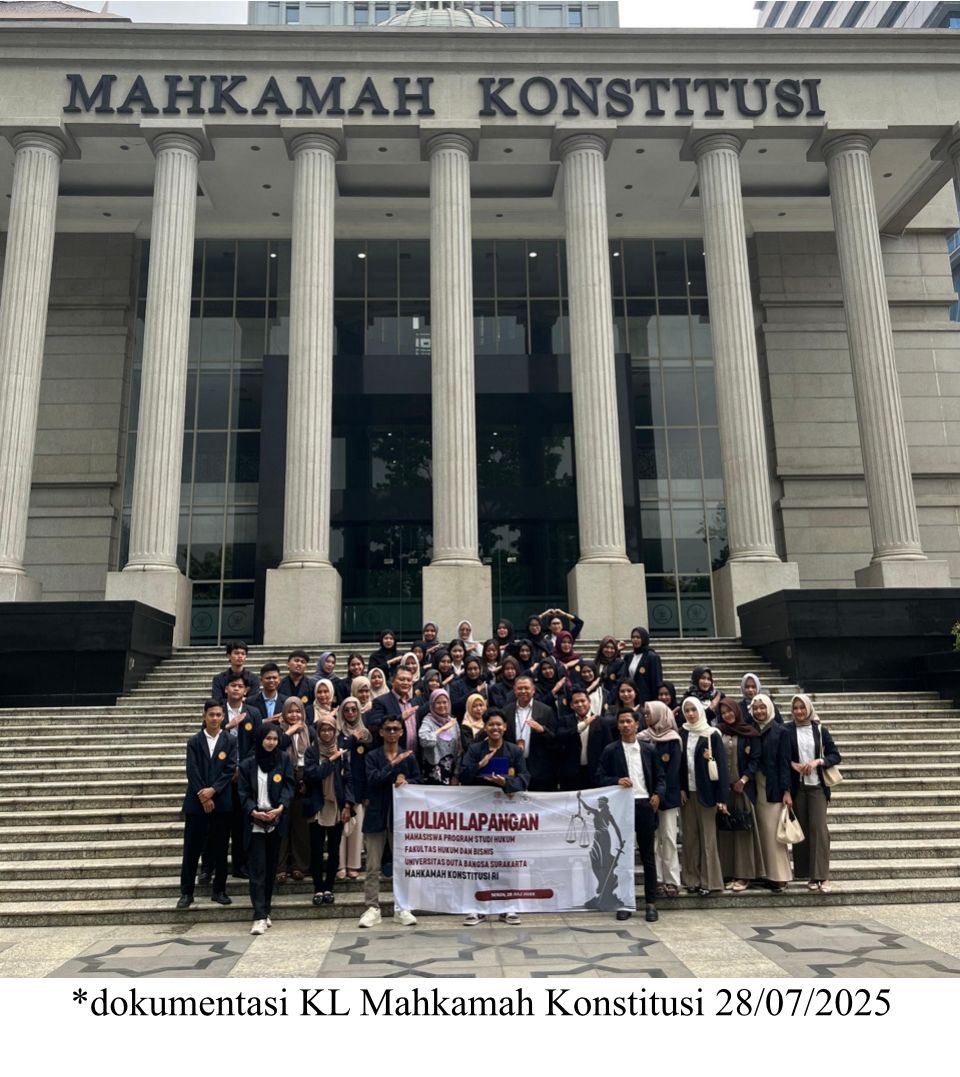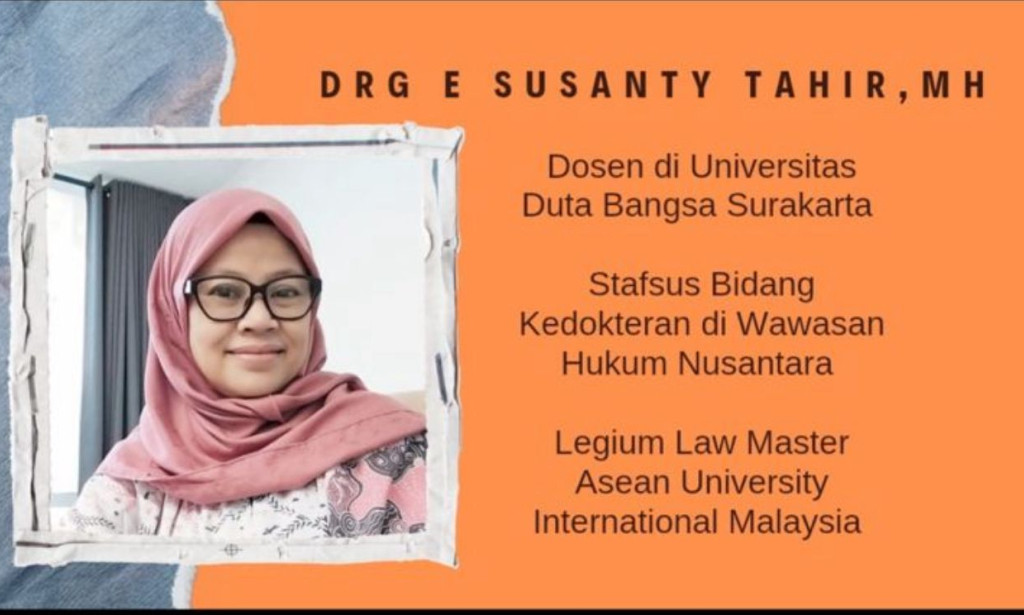
When the Campus Steps Down the Mountain and Knocks on the Door of the Constitution
Jakarta, August 4, 2025, Amidst the escalating drama of Indonesia's political landscape—from the tension at the Constitutional Court (MK) between institutional independence and political pressure, to political parties scrambling for power and the public growing weary in their pursuit of justice—a refreshing and hopeful initiative has emerged. This initiative, spearheaded by Wawasan Hukum Nusantara, involved the Faculty of Law and Business at Universitas Duta Bangsa (UDB) Surakarta making a formal visit to the Constitutional Court.
In an era where inter-institutional collaboration is increasingly vital, this visit was far more than a ceremonial formality. It represented a strategic moment, signaling a progressive and transformative spirit within Indonesia’s legal education system. As reported on the official MK website (www.mkri.id), the encounter brought new energy to the academic and legal sectors alike.
The visit centered around initiating a Memorandum of Understanding (MoU), showing how higher education institutions are no longer ivory towers of theory but are becoming active partners in building a dynamic and adaptive legal system. The Constitutional Court, as a guardian of the constitution and a pillar of Indonesian democracy, has now opened its doors for more intensive dialogue with universities that share a vision of upholding constitutional supremacy.
UDB’s Faculty of Law and Business reaffirmed its commitment to bringing students closer to constitutional realities—not just through textbooks, but by engaging directly with the nation’s highest legal institutions. This initiative deserves recognition, as it opens academic access to the heart of judicial decision-making—an important step toward contextual, responsive, and impactful legal education.
More than just a study tour, this collaboration is an opportunity to cultivate integrity, professional ethics, and public accountability—qualities that must define the future legal professionals of Indonesia. Through direct engagement at the Constitutional Court, UDB's lecturers and students not only absorbed structural and functional insights but also learned how the constitution operates amid the evolving challenges of modern times.
This journey is not about taking group photos in front of a grand building or returning home with wrinkled matching shirts. It's about strategic coordination, establishing institutional ties, and ensuring universities don’t merely produce thesis papers, but meaningful connections with national institutions—straight to the heart: the Constitutional Court.

Such initiatives are like an oasis in a desert of overly textbook-based curriculums, which often feel detached from reality. The MK is not a myth or a mere collection of memorized legal articles—it is a living institution whose decisions can shift the course of the nation’s democracy. By choosing to engage directly, UDB’s faculty and students demonstrated that academia should not just be a passive commentator from the sidelines.
It is widely acknowledged that the idealism of law students often fades under the intense heat of real-world legal practice. Yet visits like this serve as a moral supplement. If legal education is confined to PowerPoint slides and textbooks, when will students ever realize that safeguarding the constitution is not just the job of judges, but a civic calling for every citizen?
Universities bear the responsibility of producing graduates who not only understand legal texts but also comprehend context. The Constitutional Court offers a rich learning arena for instilling constitutional values, substantive justice, and the dynamic contest of legal interpretation within a democratic framework.
This step by UDB inspires not only a transformation in legal education but also broadens student learning opportunities by offering empirical insight into the roles of state institutions. In today’s legal environment, enforcement challenges go beyond technical skills—they demand moral integrity, ethical competence, and critical thinking. If optimized, this synergy can serve as an ideal prototype for collaboration between the judiciary and academia.
In conclusion, this visit is not just a calendar event—it is a historic milestone. It marks the meeting point between theory and practice, between academia and state institutions, between the learners and the lawmakers. UDB’s bold step should serve as a precedent for other universities in formulating a visionary, inclusive, and justice-oriented approach to legal education in Indonesia.
Author
(Drg. E Susanty Tahir, MH — Lecturer at the Faculty of Law and Business, Universitas Duta Bangsa (UDB) Surakarta; Special Staff in Medical Affairs at Wawasan Hukum Nusantara; Law Legium Master, ASEAN University International Malaysia)


You must be logged in to post a comment.